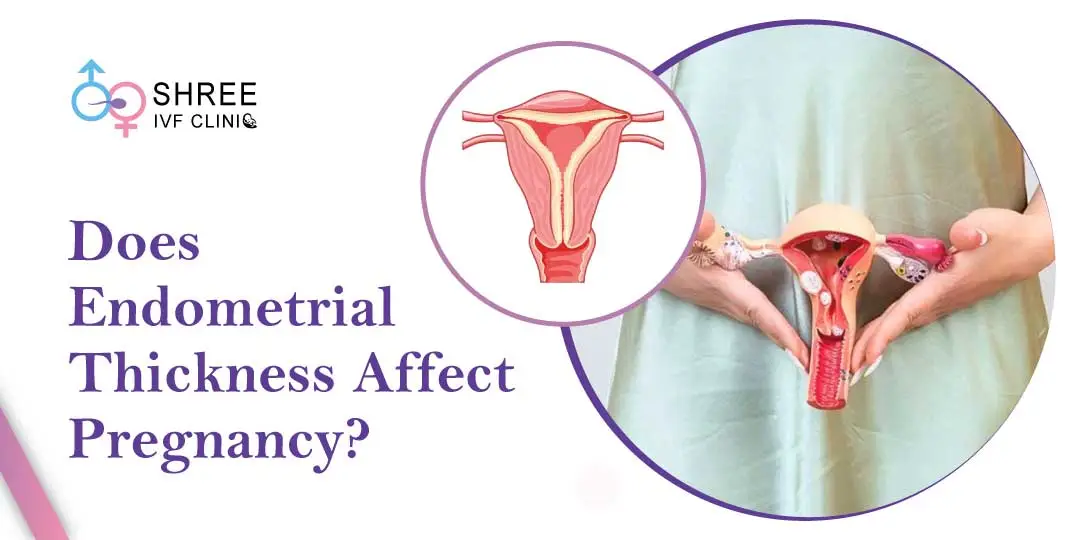Signs and Symptoms of Implantation Failure: What to Know
UPDATED ON 27 JUN. 2023
In this article, we will discuss the key questions such as its majority among people, symptoms revealing unsuccessful implantation, and when it is appropriate to consult a doctor.
By shedding light on these aspects, your fertility specialist can better recognize potential complications and provide suitable support to patients experiencing challenges during the early stages of pregnancy.

AUTHOR
Dr Jay Mehta
Scientific Director & IVF Specialist with 10+ years of experience
CONDITION
GET IN TOUCH ON
Implantation, the process by which a fertilized egg attaches itself to the uterine lining, is a vital step in early pregnancy. This attachment allows the developing embryo to receive essential nutrients and oxygen from the mother’s bloodstream.
However, implantation may not always be successful, leading to an unsuccessful pregnancy.
What is the Unsuccessful Implantation of a Fertilized Egg?
Unsuccessful implantation of a fertilized egg, or failed implantation, is when the fertilized egg cannot attach to the uterus lining during early pregnancy.
This attachment is important because it helps the growing baby get nutrients and oxygen from the mother.
If the fertilized egg doesn’t attach, the pregnancy cannot continue.
Now let’s take a look at
Symptoms of Failed Implantation Failure
However, some indications that implantation might not have been successful include:
- No Implantation Bleeding:
Some women experience light spotting or bleeding when the fertilized egg attaches to the uterine lining.
If this doesn’t occur, it could be a sign of unsuccessful implantation, although not all women experience implantation bleeding.
- Absence of Pregnancy Symptoms :
If you don’t notice any early pregnancy symptoms such as breast tenderness, fatigue, or increased sensitivity to smells, it could indicate that implantation hasn’t occurred.
- Negative Pregnancy Test :
If you take a home pregnancy test after your missed period and it shows a negative result, it’s likely that implantation hasn’t been successful.
However, it’s important to note that false negatives can occur if the test is taken too early or if it’s not done correctly.
- Regular Menstrual Period:
If you experience your regular menstrual period, it’s a strong indication that implantation did not occur.
Keep in mind that these signs are not definitive proof of failed implantation, and it’s always best to consult with a healthcare professional if you have concerns about your pregnancy.
When Does Implantation Bleeding Occur?
Timing of Implantation Bleeding
- Ovulation: Occurs around day 14 of a 28-day menstrual cycle.
- Fertilization: Happens within 24 hours of ovulation if sperm is present.
- Implantation: Takes place 6 to 12 days later, around days 20–26 of the cycle.
- Bleeding Duration: Lasts a few hours to 1–3 days, usually lighter than a period.
Is Failed Implantation Common?
Failed implantation is relatively common, especially during the early stages of pregnancy.
It is estimated that around 30-50% of fertilized eggs may not successfully implant in the uterine lining.
Many of these failed implantations result in early pregnancy loss, often before a woman even realizes she is pregnant. This is sometimes referred to as a “chemical pregnancy,” when the pregnancy is only detected by hormonal changes and not through ultrasound.
Several factors can contribute to failed implantation, such as chromosomal abnormalities in the embryo, hormonal imbalances, issues with the uterus lining, or lifestyle factors like stress, smoking, or excessive alcohol consumption.
It’s important to remember that experiencing a failed implantation does not necessarily mean there’s an ongoing issue with fertility, as many women go on to have successful pregnancies after experiencing one or more unsuccessful implantations.

4,790+
379K+
When to See Doctor
It’s essential to consult a healthcare professional if you have concerns about implantation or your pregnancy.
Some situations in which you should see a doctor include:
– Recurrent Pregnancy Loss:
If you’ve experienced two or more consecutive miscarriages, it’s important to consult with a fertility specialist in Mumbai, Dr. Jay Mehta, to determine the underlying cause and discuss potential treatments or interventions.
– Irregular Menstrual Cycles:
If your menstrual cycles are consistently irregular, you may need to see a doctor to evaluate any underlying hormonal imbalances or other conditions that could affect fertility and implantation.
– Severe or Unusual Symptoms:
If you experience severe pain, heavy bleeding, or other unusual symptoms during the time when implantation should occur, consult a doctor to rule out any complications or health issues.
– Difficulty Conceiving:
If you’ve been trying to conceive for over a year (or six months if you’re over 35 years of age) without success, it’s advisable to seek medical advice to assess potential fertility issues and discuss the available options.
Remember, it’s always better to consult with a fertility specialist in Mumbai if you have any concerns or questions regarding your reproductive health or pregnancy.
They can provide personalized guidance and support based on your unique situation.
Consult with Dr. Jay Mehta; he has more than 13 years of experience. People usually come at our door to take a last chance.
Check our reviews if you want the truth.
AUTHOR
Dr Jay Mehta
Scientific Director & IVF Specialist with 10+ years of experience
CONDITION
CALL US 24/7 FOR ANY HELP
GET IN TOUCH ON
Share Article on
Recommended Reading
Endometriosis Thickness and Its Impact on Pregnancy
A good endometrial thickness (8-14 mm) is essential for pregnancy, especially in women with endometriosis. Learn how it impacts fertility and conception
Drinking in Early Pregnancy Without Knowing
Early pregnancy alcohol consumption raises risks of miscarriage and Fetal Alcohol Spectrum Disorders (FASD), affecting the baby’s health and development
Is Chickenpox Dangerous in Pregnancy?
Chickenpox in pregnancy is risky for the unvaccinated, yet if you’ve had it previously, your strong immune defenses protect both you and your baby




